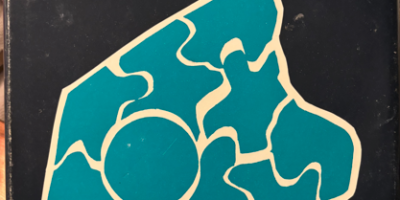Misadventures in the city
By Beth Connors-Manke
Indianapolis, the 1980s: When I was younger, sometimes my dad would say, “Your mother made another friend today.” I have a big family, and few of us have the social skills necessary for intentionally making friends. We’re equal measures congenial, feisty, and reserved.
So, when my dad tells me that my mom “made a friend,” it means that some stranger in line at Kroger or between bolts at Jo-Ann Fabrics just started talking to my mom and wouldn’t stop. Being congenial yet reserved (she’s the least feisty of the bunch), my mom listens and sometimes adds a few comments.
Lexington, earlier this winter: Beth is walking to work, truckin’ on down N. Lime, approaching that bastion of high tuition prices, Sayre School. Somebody starts yelling at me:
“Hey lady! Hey girl! Hey young girl!”
It is not my habit to respond to people who yell at me on the street, so I ignore him.
“Hey girl! Hey girl! Hey girl! Hey girl! Hey girl”
Now I’m annoyed—enough so that I whirl around and yell back: “What?!!!”
“You got any money for me? A cigarette?”
Nope, I’ve got neither for yeller man, so I keep walking.
It takes me about twenty feet to realize that yeller panhandlin’ man is here to stay, as he begins padding along with me. I figure I have two choices: 1) tell him to bug off, which would create more drama than I want on my walk to work; 2) let him walk with me until he gets tired and peels off to panhandle someone else.
When it became clear that yeller man was going to be my “friend for the day” (that’s what my mom calls them), I renamed him (in my head) “Leon.” Leon had dreads topped by a winter hat with a big yellow bow on it; his face was one of the most beautiful I’ve ever seen. Dark, a bit worn and weary, but wonderfully etched — a face an artist should sketch.
Leon told me the he was staying with his brother, and that his mother was from Chicago, and that he’d been living in Cinci before, and that he was staying with his brother, and that his mother… We cycled through this story innumerable times during our amble. I’d ask questions every once in a while to get clarification or to simply participate, but I couldn’t ever bring him out of the broken record. I don’t think he recognized that he was circling through the same stories.
When we got to McDonald’s on UK campus, Leon asked me for money and a cigarette again. Seeing as we were still in the same narrative, I said “no,” and he yelled at me again. I kept walking to my office. I’m guessing Leon and I walked a mile together on a chilly morning. When I saw him later that day, he didn’t seem to recognize me. I appreciate what my experience with Leon brought me: a little more compassion, a little less fear, and a sense that sometimes (not every time) panhandling is about something more than money.
There have been some discussions around my neighborhood recently about panhandling; people feel it has become more aggressive, especially around Al’s Bar at Sixth and Lime. I’ve been pressed fairly hard there late at night and sympathize with those complaints, especially when made by women approached after dark. If I walked alone at night (I don’t) and Leon had approached me as he did, the scenario would have proceeded much differently: good chance I would have run or called the cops.
But after my experience with Leon, I’ve been thinking differently about panhandling: it’s a good barometer of the social tensions in a city. Being approached for money, or approaching someone else for money, puts us face-to-face (literally) with the issues of class, race, and gender in Lexington. Black Leon approaches white Beth in front of rich Sayre. Further south on Lime, white woman panhandles a Latino business man in a suit. Around the same area, haggard white man approaches a family dressed for Rupp Arena. Further south still, black middle-aged man walks onto the Two Key’s porch to ask a group of young white folk for gas money.
Every time these scenarios happen, we have to see what we may want to ignore in our city: that there are racial and ethnic differentials that sometimes also fall along economic lines; that there’s addiction and mental illness so debilitating that it leaves people to wander the streets; that being approached by a stranger can feel dangerous for a woman or for undocumented immigrants.
Some cities aggressively try to eliminate panhandling in order to wipe out evidence of how the community is failing or simply how broken a person can become. But we do need to see our failures and our brokeness; facing the suffering in our city is the only hope we have for ameliorating it.




Leave a Reply